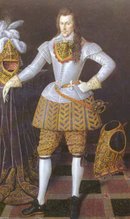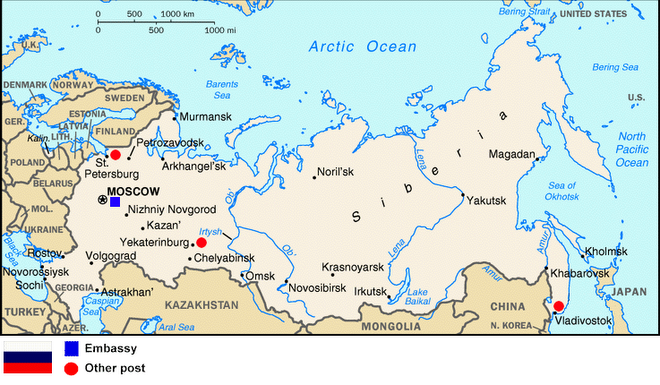These are the last of the Bolshoi performances I will see before coming back to Moscow after an extended Christmas / New Year break in Italy.
Ballet: Three one act ballets (14th December)
What unites these three one act ballets? I am not sure I have quite put my finger on it:
- Chopiniana – very elegant, if slightly stayed and ancient piece choreographed by Mikhail Fokine in 1908
- The Lesson – about which I have written before here – but startlingly different from the last time I saw it
- Carmen Suite – Triumphant one act piece set to, and abbreviating, Bizet’s masterpiece.
It might have been ‘love’ (eugh): unreal love; perverted love; love betrayed.
With one or two ‘break out’ exceptions, however, this was a rather bland, somewhat derivative, night from the world’s greatest ballet company.
Chopiniana is one of those pieces that, if you are bringing a visitor to Moscow who really doesn’t often *do* ballet, but wants to experience the Bolshoi, is perfect. It is beautiful, if a bit gratingly chocolate box-y. Selected quotes from the program essay follow:
“The distant past and the remote future are here united in an uneasy creative vision…neither the 19th nor the 20th centuries… [The 1900s were the] years of grace, the years of a happy interval in Russian art. These were the years when all bans and taboos – moral, ideological and other – which had hampered the development of the arts [in Russia], were relaxed…
“…as an artist [choreographer, Mikhail] Fokine belongs to the interval between two [Russian] epochs, the ‘technical’ 19th and bloody 20th centuries…”
Yep, that pretty much sums it up: a museum-piece (albeit a charming one), nice for tourists and ‘important’ to have seen; a box ticked. But Alexander Titov conducted the Bolshoi’s mélange of 8 Chopin pieces here rather well. Albeit that Chopin is not a composer I am able to get very excited about (sorry!).
The Lesson was much more interesting – conductor, Igor Dronov brought the Bolshoi orchestra to a new level – not least because I was expecting a disappointment. In the Bolshoi’s repertoire, sadly inevitably aging, enfant terrible, Sergei Filin *is* the maestro of this piece and usually no one else but him can really put it off.
Previously I have written that, danced by him, this piece was ‘Hitchcockian…darkly funny”. His relatively last minute replacement was Dmitriy Gudanov, and he danced and performed the role completely differently. There was nothing comic about it. It was psychologically brutal – we were witnessing child murder on stage – and almost harrowing to watch. More like snuff ballet. Above all, it reveals quite a lot about the unbreakable cycle and banal inevitability of human evil…
…and you thought ballet was just about pretty prancing!
While fans of Sergey Filin will say that piece forever belongs to him, the deeply tormented – and tormenting – performance of Gudanov is I think remarkable and very close to the origins of the libretto; based on the play by Eugene Ionesco. I quote from the program’s interview with controversial, veteran choreographer, the Dane, Flemming Flindt:
“This is serious dramatic material and there is no way its action can be beautiful.
“…the dramatic text has a socio-political colouring and implication. The dramatist [Ionesco] told me the action unfolds during the Second World War in Nazi-occupied Paris. The chief character [the ballet teacher] is a dictator-maniac, his assistant [the accompanist] the German people, while the little girls [pupils] who turn up, one after the other, are the victims of the occupiers, they are strangled by the maniac, who deprives them of life.” [The principal victim wears a startling yellow costume, so the link to the Holocaust is hard to miss]
Gudanov’s performance is faithful to this and I am not sure that, compared to Filin’s undoubtedly admirable rendition, isn’t the better for it. Seen in its raw literality it is quite hard to stomach; but absolutely riveting.
BTW: the audience rightly celebrated, above all, Irina Zibrova’s formidable and complex portrayal of the accompanist. Aristotelian in her tragedy, it was therefore tinged with our sympathy and thus a small, quiet triumph of a performance. Again, quite unlike Ilze Liempa (who normally partners this with Filin).
Neither partnership is necessarily ‘better’ than the other. They are incomparable which, in itself, is interesting.
The final one-act piece presented was Carmen Suite. This is good fun stuff and a well-chosen finale to an otherwise uneven evening. Ruslan Skvortsov, as José, was very good (and more exciting a dancer than other times I have seen him); but the star turn, as it should be, was Galina Stepanenko, in the title role.
Opera: The Tsar’s Bride (16th December)
Wow! What a performance. As a composer, Rimsky-Korsakov is hugely under-rated in the West and part of the reason may be that his operas are not ‘easy’ (it is amazing to think he has 15 to his name and the rarity with which the majority are now performed, a little sad). They are rich, musically dense and – while requiring some concentration – are as emotionally epic as the history they often depict.
Loosely based on a vignette of the life of Ivan the Terrible – and the tragic fate of one of his wives (a pretty long list that; Ivan the Terrible was as much a wife-killer as Henry VIIIth, without the latter’s boyish charm) - it is one of the three great quintessentially-Russian operas (IMHO). The other two in the canon, I would humbly suggest, are Eugene Onegin (not quite my cup of tea, Tchaikovsky opera) and Modest Musorgsky’s Boris Gudunov (which I love).
As is often the case in Russian opera, Act one was a bit of a trial (and a four-act opera, on a Sunday night, does require some effort on the part of the audience), but eventually the performance was a triumph. Some foreign visitors – who had perhaps booked ‘a night at the Bolshoi’ irrespective of what was on – clearly decided they found it all a bit much. Audience-wise, there was quite a disappointing attrition, from the ‘posh seats’ by the end of the evening. This is an opera-lover’s opera.
Highlights (from the scribbles I made in my program):
- Irina Dolzhenko as the tragic Lyubasha – her forlorn arias in Act I (all the more impressive for being a capella) and Act II were incredible and unforgettable.
- Mariya Gavrilova as Marfa – the heroine and female lead – while perhaps a tad too old for this part, her arias in Act II and Act IV were show-stopping
- Leonid Vilensky as the wicked Bomelius (performed con brio and with some charm, as good opera villains should be)
- Act III is one of the most rousing moments in Russian opera you will witness
- Act IV – is that set borrowed from the current production of Boris Gudunov? – stood up well to its show-stealing predecessor; and belonged to Gavrilova.
- Alexander Titov – again conducting – shows he is still master of the Bolshoi’s traditional canon of work.
- Irina Rubtsova – one of my favourite Bolshoi principal soloists, I was disappointed she ‘only’ had the cameo role of Saburova. But her Act III solo was just *wow*.
- Vladimir Redkin, as Gryaznoy, gave a very strong performance in the male lead – especially in Act IV. He also gets a costume change for each act and thus enjoys perhaps some of the most sumptuous costumes male leads at the Bolshoi ever get to wear…even if a little like my (sadly long dead) nanny’s choice in curtain material.
No more Bolshoi now for me until my return to Moscow in mid-January (although I see the finalized repertoire for January is looking tired, as that artistically ‘dead’ month in January, in Moscow at least, often is). Worth seeing again though, I think, the current production of Tosca.
Monday, 17 December 2007
Subscribe to:
Post Comments (Atom)





No comments:
Post a Comment